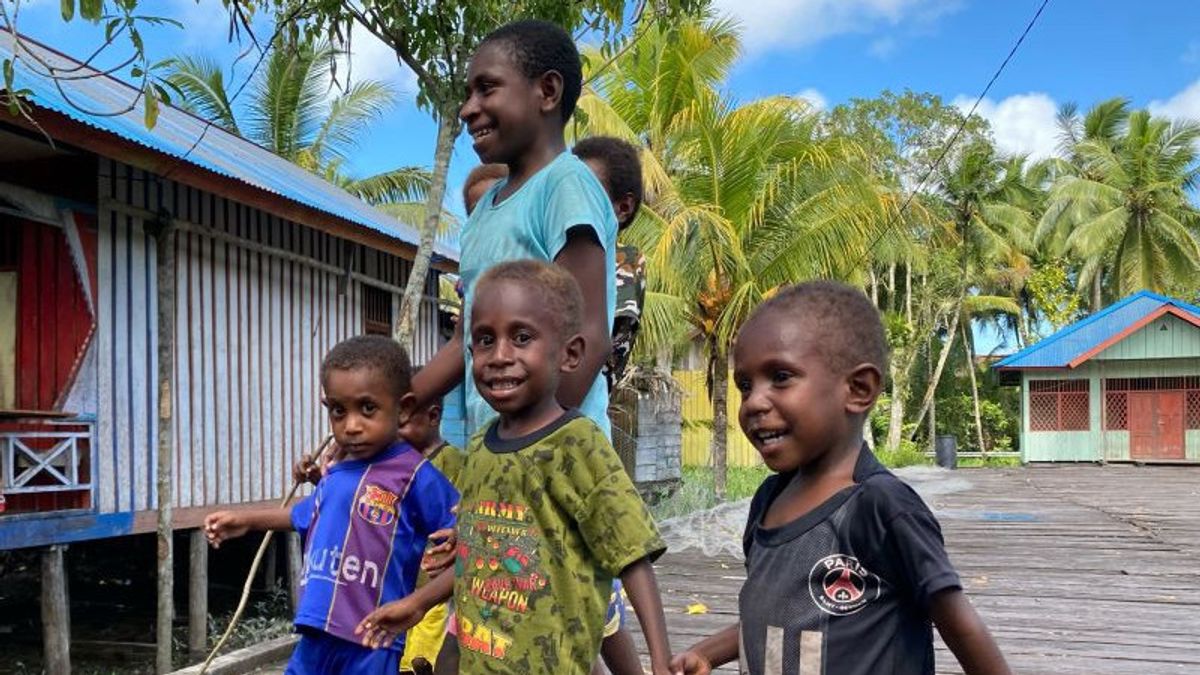WARSE ASMAT - A teacher from the Warse YPPK Elementary School, Asmat Regency, Papua, Blandina Kanubun said the Asmat Tribe is experiencing a shortage of teachers in carrying out learning activities and also to compensate for the increasing number of students.
“There are five teachers in the village, including the principal. The principal also teaches, usually fifth and sixth grades are combined because there are few officers," said Dina, as reported by ANTARA, Wednesday, June 22.
Dina said that currently the number of elementary school students in three villages namely Warse Village, Akamar Village and Birak Village had reached 179 people. However, there are only five teaching staff, including the principal.
There are only three classrooms used for learning. If the number of teachers is complete, the class will be full of children until the school has to borrow other rooms such as the church hall, in the church and the assembly hall to teach.
But if the teacher is not present, the children present will be few. Causes class to merge and split into three.
“So sometimes when there is a shortage of class, they are in the church, hall or on the church terrace. That is if it is complete, if the teacher is not complete, first and second grade is one class, three and four are one class, five and six are one class,” said Dina, who is a second grade teacher at the elementary school.
As a result of the lack of teachers, it is still found that many students at each grade level are not fluent in reading, writing or arithmetic. So that the learning material is only about recognizing letters, learning to read and writing, even though they are at different ages.
Dina said that in the second grade, out of 32 students, only five children were fluent in reading. While in the first class there are only about two people.
“Their Indonesian is good, but their understanding is lacking. In local language schools it is forbidden but reading and writing is still very visible," he said.
Dina said that children often drop out of school because they are lazy to study and choose to play or take care of their siblings at home. It is also encouraged by the indifference of parents to children's education.
“The first class already exists, but the second class is getting more and more. Sometimes there are five people not many. Yesterday 13 people in sixth grade. Dropouts are lazy, there are no teachers or encouragement from parents at home," he said.
Meanwhile, the teacher who teaches in the sixth grade of elementary school, Mariyata Konrada Waragan also admitted that she had followed the wishes of the local government and school principals to provide reading and writing lessons through the 2013 Curriculum (K13).
Unfortunately, many children who cannot read and write make it difficult for teachers to move on to other subject matter. Moreover, following the learning method in the city, so the teacher does creations such as making a vegetable garden as a learning medium that is suitable for Asmat children.
Mariyata revealed that Asmat children also prefer to be invited to memorize parts of the human or animal body directly, according to their respective functions.
Learning in open spaces by observing directly while playing is the most appropriate and fast learning creation for Asmat children to understand. Through this learning method, only two children out of 13 were not accepted into junior high school.
"Indeed, if we want to follow the one in Jakarta here, it can't be done at all. Meanwhile, the fifth and sixth grades are not fluent in reading. Some are new to letters only. But we are trying with the material that it can be followed properly," he said.
The English, Chinese, Japanese, Arabic, and French versions are automatically generated by the AI. So there may still be inaccuracies in translating, please always see Indonesian as our main language. (system supported by DigitalSiber.id)








